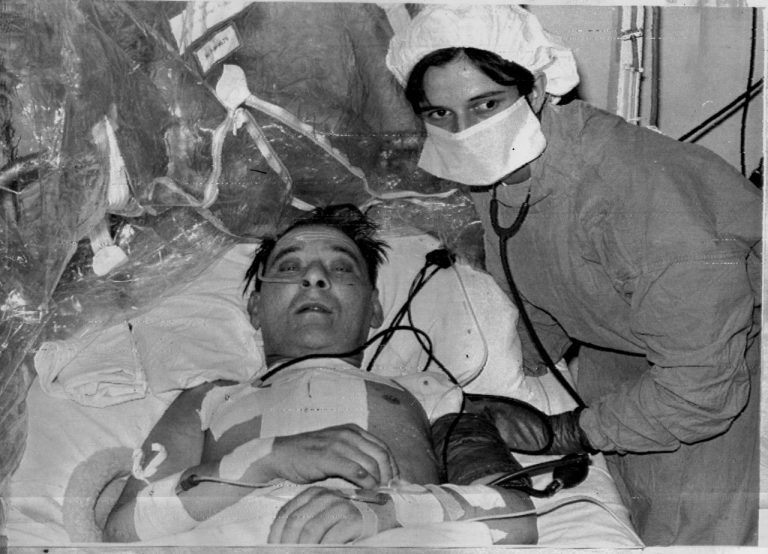55 years ago, in 1967, South African physician Christian Barnard performed the first successful heart transplant from a donor to a recipient in the history of medicine, ushering in the era of transplantation in medicine.
Attempts to transplant a human heart have been made before, but they all ended in the death of the patient, since the heart of a chimpanzee was used for transplantation. The first operation was in 1964 in the USA, the recipient was a 68 years old pensioner with a heart condition. He was transplanted with the heart of a chimpanzee, he was able to be started with a defibrillator, but the recipient lived after the operation for only 1,5 hours and died without regaining consciousness.

Photo: knowhow.pp.ua
After three years in Cape Town (South Africa), Christian Barnard transplanted the heart of a 25 years old woman who died in a car accident to 55 years old Louis Washkansky, who suffered from an incurable heart pathology. And although the patient lived after the operation for only 18 days, it was this heart transplant attempt that became the first successful and successful one - after all, Washkansky died not from the operation itself, but from bilateral pneumonia.
The second patient of Dr. Barnard, Philip Bleiberg lived after a heart transplant for 19 months and even managed to write a book about what he experienced.
At present time, heart transplant patients live for many years. The record today belongs to Tony Hughesman, who lived after such an operation with a strange heart for 30 years.
Heart transplant operations have long passed into the category of conventional, although technologically complex. About 3,5 thousand heart transplants are performed annually in the world. Approximately 56% of operated patients live more than 10 years after. The main problem of such operations is the possible rejection of the donor organ by the recipient's body.

